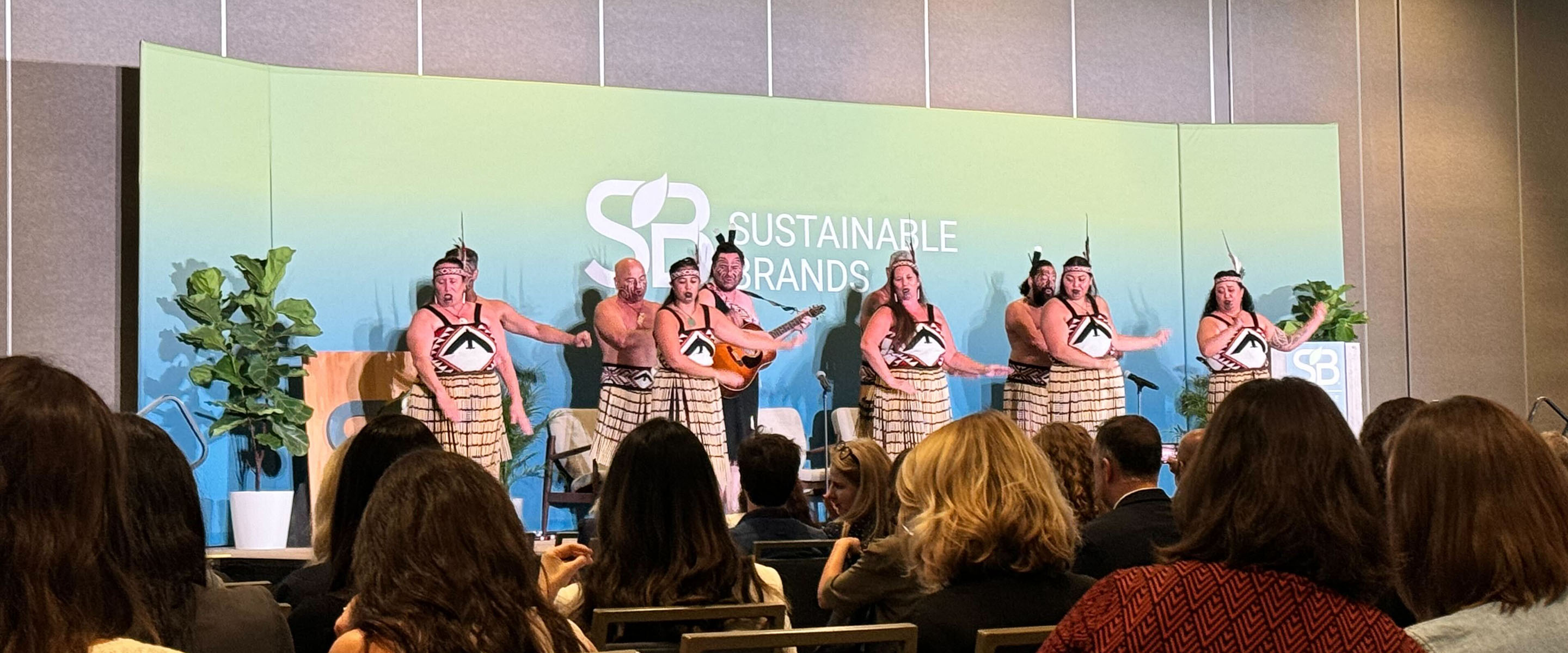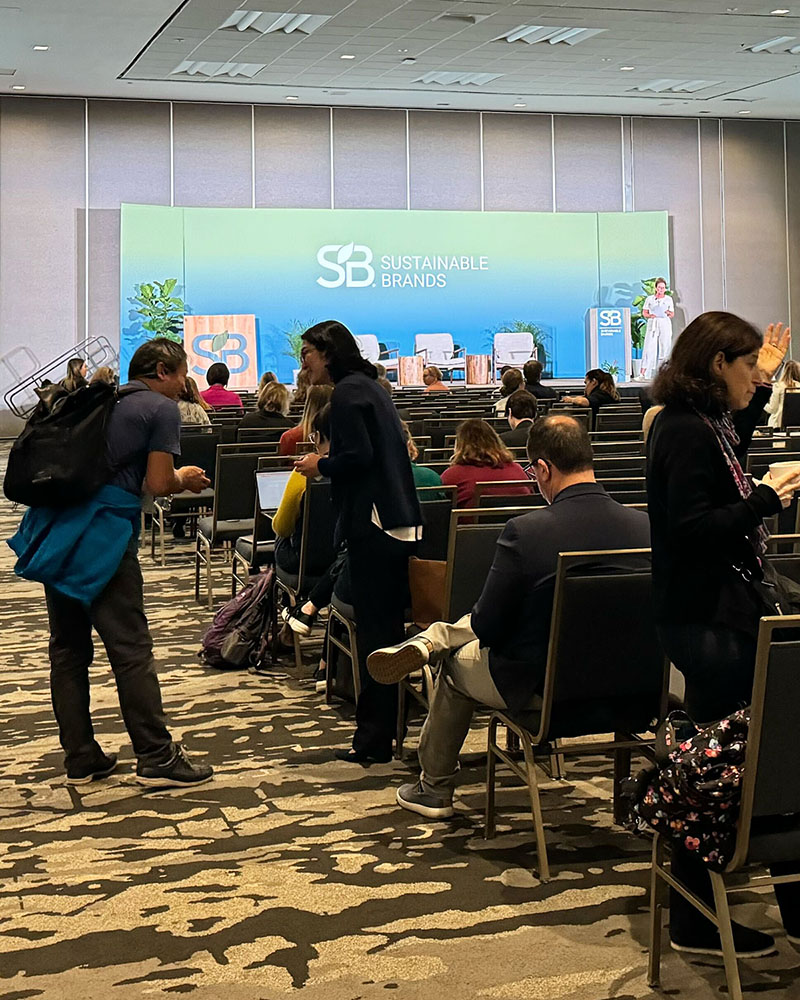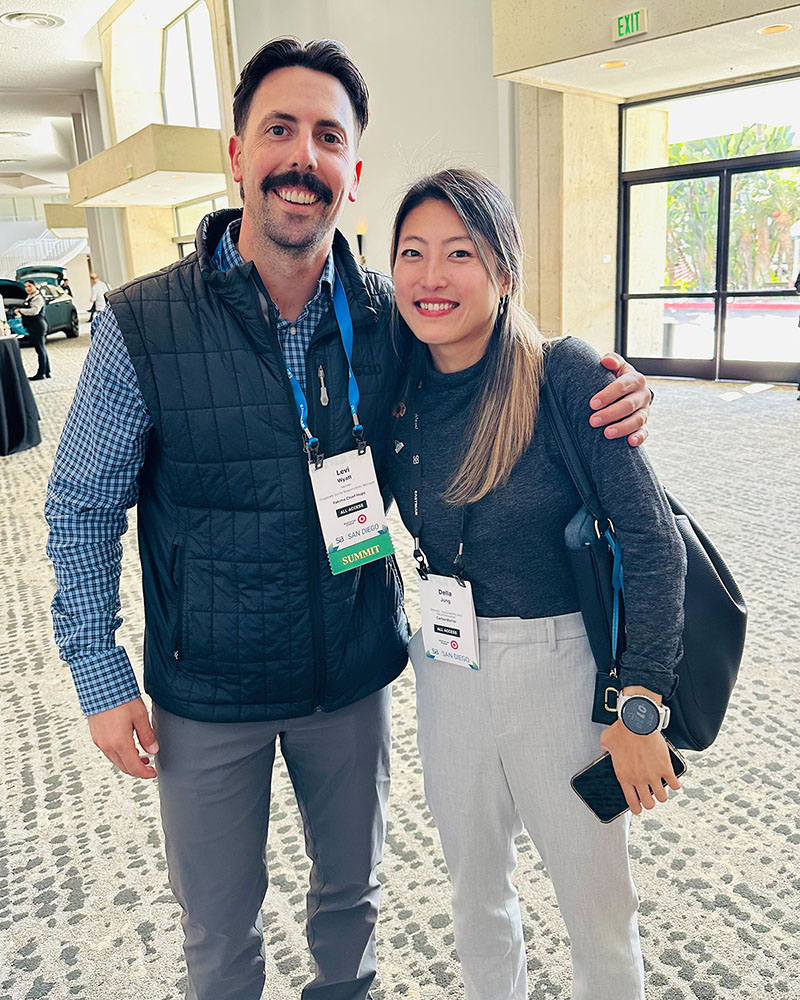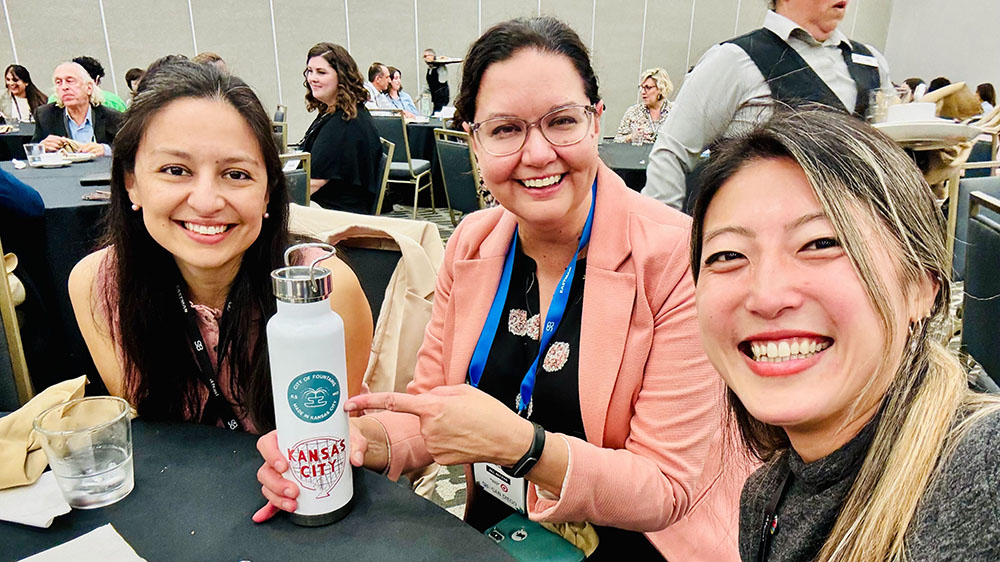5 Key Takeaways from SB’24 San Diego and VERGE 24


🌍 Carbon markets can feel overwhelming—fragmented data, limited transparency, and conflicting advice make it hard to know where to start. In this webinar, our experts give a clear, practical introduction to the VCM.
Alignment, compliance, and public perception were central themes at SB’24 and VERGE 24.
This year’s Sustainable Brands (SB’24) and VERGE 24 conferences highlighted “Breakthrough Innovation” in sustainability, focusing on what it takes for companies to drive meaningful, lasting change. As organizations face mounting regulatory pressures and evolving public expectations, they’re encountering challenges in achieving internal alignment, collecting accurate data across their supply chains, and meeting new compliance standards. Additionally, the general public and many stakeholders still struggle to grasp the complexities of less tangible sustainability issues, like emissions reporting or carbon offsets, as they don’t often view these through a lens of business materiality. Here are our top five takeaways from SB’24 and VERGE 24.

1. The gap between perception and action in sustainability is still significant.
Recycling is often seen as the bare minimum for sustainability action, yet it remains the primary way the public perceives sustainability. Even then 32% aren’t confident that recycling programs work. Only 30% of Americans understand concepts like the “circular economy,” and most people are more concerned with visible issues, such as plastic pollution, over broader, intangible challenges like greenhouse gas (GHG) emissions. Calculations, emissions, and other things that can’t be seen or touched continue to have a hard time resonating with both the public and stakeholders. Companies need to better communicate the value of sustainability actions that aren’t always visible but are critical to driving impact.
2. Securing internal buy-in is a common challenge for sustainability professionals.
Many companies and brands, especially those with more mature sustainability programs, understand the significance of setting long-term incentives internally to motivate their stakeholders in order to achieve their public-facing commitments. Some brands are having to retract their prior targets and commitments due to a lack of internal buy-in and progress within company walls. Securing internal buy-in, both at management and employee levels, is a common struggle and challenge for sustainability professionals. For sustainability efforts to succeed, companies need to secure alignment across all levels of the organization, from management to frontline employees.



“Calculations, emissions, and other things that can’t be seen or touched continue to have a hard time resonating with both the public and stakeholders. Companies need to better communicate the value of sustainability actions that aren’t always visible but are critical to driving impact.”
Dominic Sung, former Director of Business Development
Skip the RFP—CarbonBetter can help
CarbonBetter Certified Offset Portfolios allow carbon buyers to participate in a variety of projects, geographies, and technologies in one simple transaction rather than navigating a lengthy and complex RFP process with multiple carbon market participants.
Learn More about CBCO 22-13. Industries are under pressure to form alliances for sustainable innovation.
Many industries, including music, fashion, consumer packaged goods (CPG), and cosmetics, are facing increasing pressure to form pre-competitive alliances with peers and competitors to drive sustainable solutions. In the cosmetics sector, for example, Ulta Beauty is actively building partnerships across the industry, bringing together cosmetic retailers, producers, packaging manufacturers, and sustainability organizations to foster innovation and accelerate progress.

4. Supply chain data collection is a major barrier to accurate emissions reporting.
Data gathering remains one of the toughest challenges, particularly when relying on external suppliers. Achieving a balance between completeness and accuracy is difficult, and companies often have to start with estimates or a spend-based approach. While spend-based calculations offer a starting point, they limit real reductions—emissions decrease only if spending does, which isn’t practical. Moving toward activity-based data is essential for true progress, but it requires more precise measurement and, often, restating baselines and targets. Clear communication with stakeholders is vital to set expectations and emphasize that accuracy improves over time.
5. Defining clear, actionable steps for climate action remains a challenge.
The devil is in the details when it comes to building an effective climate strategy. Many companies still struggle to determine the first tangible steps and establish a clear order of priorities. Compliance with evolving regulations, such as California’s SB 253 and SB 261 or global standards like CSRD and CBAM, requires careful planning. From choosing the right reporting frameworks to setting actionable milestones, companies need a structured approach to make meaningful progress.

Conclusion
SB'24 and VERGE 24 highlighted the urgent need for actionable, data-driven strategies in sustainability. As compliance deadlines and public expectations grow, companies need a clear path to navigate these challenges effectively. At CarbonBetter, we provide practical solutions to help organizations align their goals, refine data practices, and stay ahead of regulatory demands.
Need help? No matter where you are in your sustainability journey, we're here to help. Contact us today to learn more.
Internal alignment is foundational for any sustainability initiative. Without buy-in at all levels—from management to frontline employees—companies risk falling short of their goals, or even retracting previous commitments. Long-term incentives and consistent internal support empower teams to move in sync, ensuring that public-facing sustainability commitments are backed by real action and progress.
Many aspects of sustainability, like emissions reporting and circular economy initiatives, aren’t always visible or intuitive to the public. Educating stakeholders on the value of actions that may not be tangible, yet are critical to environmental impact, is essential. Companies can lead by communicating clearly and transparently, helping to align public perception with the complexities of real sustainability efforts.
Industry collaboration allows organizations to address challenges that can’t be solved in isolation. By forming alliances, even with competitors, companies can innovate more effectively and share resources, knowledge, and best practices. We’re seeing sectors like cosmetics and CPG take the lead, showing that collaborative action can set new standards and drive meaningful change industry-wide.
Accurate supply chain data is key to understanding and reducing emissions, especially for Scope 3 reporting. While many companies start with spend-based estimates, real progress requires a shift to activity-based data. This transition involves setting clear expectations and communicating openly with stakeholders, as improvements in data accuracy often require restating baselines and targets.
Regulatory landscapes are shifting, with standards like California’s SB 253, CSRD, and CBAM introducing new compliance demands. Companies need a structured approach to align with these regulations, from selecting reporting frameworks to setting actionable climate goals. Our team at CarbonBetter helps organizations develop clear, data-driven strategies that meet regulatory requirements and support meaningful sustainability progress.

About the Author
Dominic Sung is a Director of Business Development for CarbonBetter. He joined the company in 2022 with a focus on growing the Climate Services business by partnering with clients on their sustainability journey to measure, report, and reduce their emissions in a transparent, traceable, and pragmatic way.

About the Author
Della Jung is Director on CarbonBetter’s sustainability, decarbonization, and climate division. She brings extensive experience in private equity and infrastructure investing, fund operations, climate and sustainability strategy to help deliver effective solutions inclusive of both financial results and social impact for her clients. Based in Washington, D.C., Della holds a BA in Government from Dartmouth College.



